
Free for All is a jazz album by Art Blakey & the Jazz Messengers released on Blue Note. Recorded in February 1964, it was released the following year. It was originally titled Free Fall.
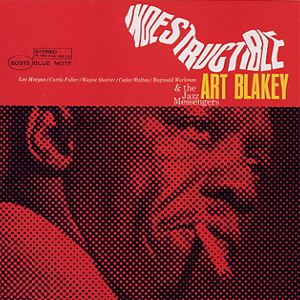
Indestructible is a jazz album by drummer Art Blakey and his Jazz Messengers. It was recorded in 1964 but not released until 1966, and was Blakey's last recording for Blue Note. The bonus track featured on the CD reissue was originally issued on Pisces.

One Night with Blue Note is a 1985 feature length jazz film directed by John Charles Jopson.

Caravan is a jazz album released by Art Blakey and the Jazz Messengers in February 1963. It was Blakey's first album for Riverside Records after he signed with them in October 1962. The songs were recorded at the Plaza Sound Studio in New York City, on October 23–24, 1962 The producer was Orrin Keepnews who also supervised the album's remastered re-release on CD.
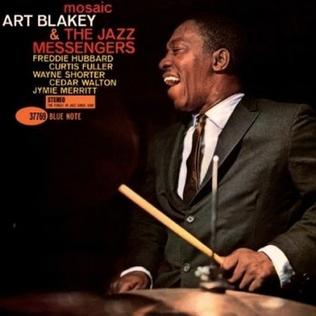
Mosaic is a studio album by Art Blakey & the Jazz Messengers recorded for Blue Note on October 2, 1961 and released the following year. The sextet features horn section Wayne Shorter, Freddie Hubbard and Curtis Fuller and rhythm section Cedar Walton, Jymie Merritt and Art Blakey.
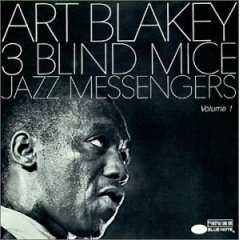
Three Blind Mice is a 1962 jazz album released by Art Blakey and The Jazz Messengers on the United Artists Jazz label, featuring live material recorded in 1962 Club Renaissance, Hollywood. It was reissued later in 1962 in two volumes by Blue Note Records, adding two tracks recorded in 1961 at The Village Gate and also unreleased material from the primary session. It was bassist Jymie Merritt's final recording with the group before having to leave to recover from an illness; he would be replaced by Reggie Workman.
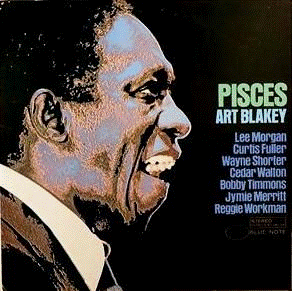
Pisces is a jazz album by Art Blakey & the Jazz Messengers. It was recorded between 1961 and 1964, but not issued on Blue Note Records until 1979. More a compilation than an album, all the tracks, except for "It's A Long Way Down", may be found on the Mosaic compilation The Complete Blue Note Recordings of Art Blakey's 1960 Jazz Messengers. Moreover, "Uptight", and "Pisces" are included on the CD reissue of The Freedom Rider, whilst "It's a Long Way Down" is featured on the CD reissue of Indestructible. Ultimately, "United" and "Ping Pong" may be found on Roots & Herbs.
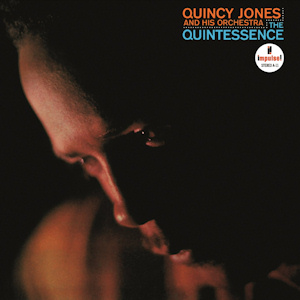
The Quintessence is an album by Quincy Jones and his orchestra. It was released in 1962 and was his only album for Impulse! One critic called it "the sound of the modern, progressive big band at its pinnacle."

Hub Cap is an album by trumpeter Freddie Hubbard and was released on the Blue Note label in 1961 as BLP 4073 and BST 84073. It features performances by Hubbard, Julian Priester, Jimmy Heath, Cedar Walton, Larry Ridley and Philly Joe Jones.
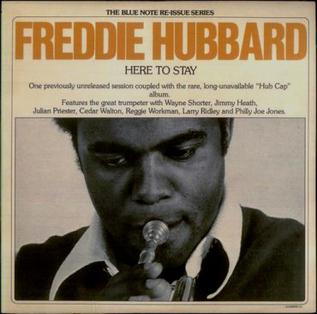
Here to Stay is a studio album by American jazz trumpeter Freddie Hubbard recorded on December 27, 1962, but not released on the Blue Note label until 1976 as BN-LA 496-2. It features performances by Hubbard, Cedar Walton, Reggie Workman, Philly Joe Jones, and Wayne Shorter.
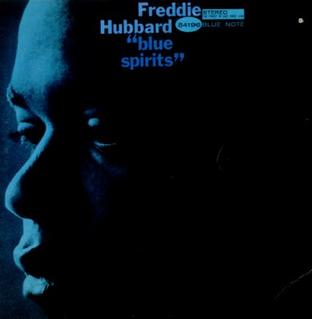
Blue Spirits is an album by trumpeter Freddie Hubbard released on the Blue Note label. It would be his last studio album for Blue Note, recorded in the 1960s. It features performances by Hubbard, James Spaulding, Joe Henderson, Harold Mabern, Jr., Larry Ridley, Clifford Jarvis, Big Black, Kiane Zawadi, Hank Mobley, McCoy Tyner, Bob Cranshaw, Pete LaRoca. The CD release added tracks from a 1966 session featuring Hosea Taylor, Herbie Hancock, Reggie Workman, and Elvin Jones.

Ugetsu: Art Blakey's Jazz Messengers at Birdland is a live jazz album by Art Blakey and the Jazz Messengers released on Riverside Records in October 1963. The album was recorded at Birdland in New York City.
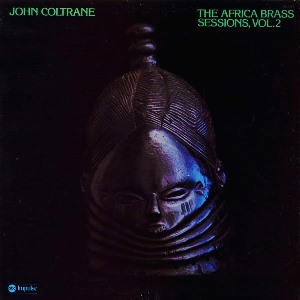
The Africa/Brass Sessions, Vol. 2 is a posthumous compilation album by American jazz saxophonist and composer John Coltrane, released in 1974 by Impulse Records. It compiles outtakes from the same 1961 sessions that produced his Africa/Brass album. "Song of the Underground Railroad" and "Greensleeves" were recorded on May 23, while "Africa" was recorded on June 4. On October 10, 1995, Impulse incorporated the tracks issued here into a two-disc set entitled The Complete Africa/Brass Sessions.
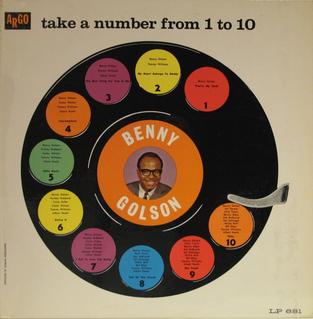
Take a Number from 1 to 10 is an album by saxophonist Benny Golson, featuring performances recorded in late 1960 and early 1961 and originally released on the Argo label.

Pop + Jazz = Swing is an album arranged and conducted by Benny Golson featuring performances recorded in 1962 and originally released on the Audio Fidelity label. Record producer Tom Wilson was involved in the sessions and wrote the album's liner notes. The album utilised stereophonic sound to present a jazz group on the right channel and an 11-piece pop orchestra playing the same song or a related tune on the left channel which could be separated or mixed by the listener. The related jazz tunes are contrafacts or borrowed chord progressions where new melodies are overlaid on an existing harmonic structure.

Kyoto is an album by Art Blakey and the Jazz Messengers, recorded in 1964 and released on the Riverside label.
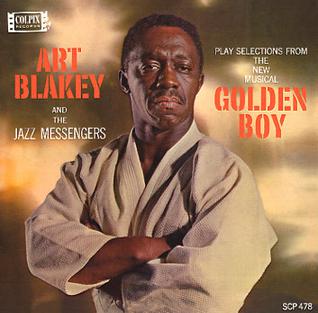
Golden Boy is a 1963 album by Art Blakey and the Jazz Messengers, performing compositions by Lee Adams and Charles Strouse written for the Broadway musical Golden Boy. The LP was originally released on the Colpix label.
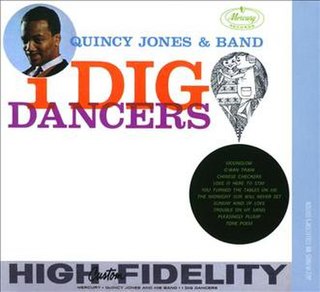
I Dig Dancers is an album Quincy Jones that was released by Mercury with performances recorded in Paris and New York City.
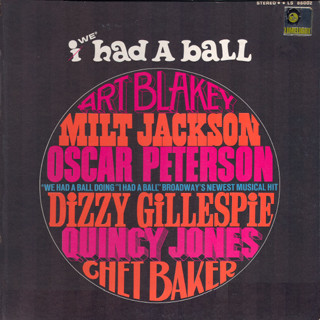
I/We Had a Ball is an album consisting of jazz versions of songs from Jack Lawrence and Stan Freeman's musical I Had a Ball performed by Art Blakey, Milt Jackson, Oscar Peterson, Dizzy Gillespie, Quincy Jones and Chet Baker which was released by Limelight in 1965.



















